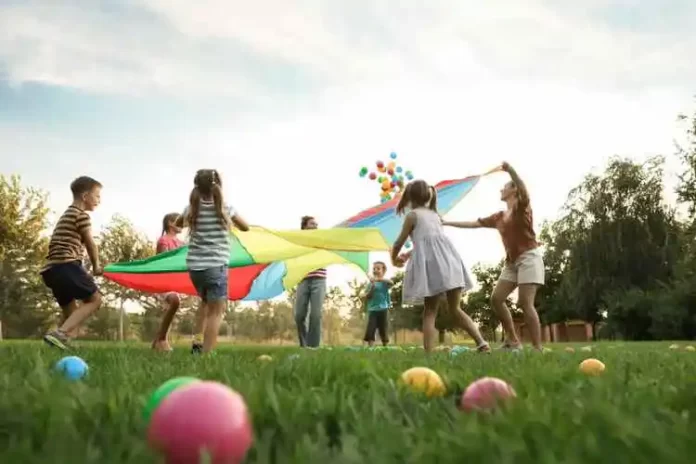Play is often seen as a child’s natural language, a way to explore and make sense of the world around them. But it’s more than just a pastime; it’s a powerful tool for learning. Through play, kids engage with their environment, experiment with various ideas, and develop crucial skills.
Early childhood education helps foster creativity and imagination through play-based learning. Play-based learning is based on the understanding that play is essential for a child’s cognitive, social, emotional, and physical development. Kids are given the opportunity to experiment and try new things, which helps them to develop their problem-solving skills, critical thinking skills, and resilience. A reliable early childhood education provider, such as a quality childcare centre in Brookvale, can provide children with a safe and supportive space to express themselves creatively.
This article explores the benefits and strategies of play-based learning, emphasizing its role in cultivating the creative and imaginative capacities of young people.
The Role of Parents and Educators
Parents play a pivotal role in nurturing creativity and imagination through play-based learning. They can actively engage in imaginative play with their kids, provide access to creative materials, and encourage exploration of the world around them. Teachers can observe their students’ interests and passions, provide guidance when necessary, and create a supportive environment that encourages discovery and experimentation.
The key is to strike a balance between guidance and giving kids the freedom to explore their ideas. By fostering an environment rich in opportunities for play, parents and educators empower their children to develop vital imaginative skills.
The Benefits of Play-Based Learning
Play-based learning offers numerous advantages that go beyond recreation, such as:
Holistic Development: Play-based learning promotes holistic development by addressing cognitive, social, emotional, and physical aspects of a child’s growth. It helps children become well-rounded individuals. In addition to cognitive skills, kids develop socially by interacting with peers, emotionally by expressing their feelings, and physically by engaging in active play.
Problem-Solving Skills: Through play, children encounter challenges and learn to problem-solve creatively. They develop critical thinking skills by devising solutions to various situations. Problem-solving skills transfer to academics, enabling excellence in math and science.
Confidence and Self-Esteem: As children explore and express themselves through play, they gain confidence in their abilities and develop positive self-esteem. When kids see that their ideas and creations are valued, it bolsters their self-confidence and encourages them to take on new challenges.
Love for Learning: Children who associate learning with fun and discovery develop a positive attitude toward education in their formative years. Play-based learning makes learning enjoyable and intrinsically motivating. It instills a love for learning that can last a lifetime.
Preparation for Future Success: Creativity and imagination are valuable skills that can benefit kids in their future academic and professional endeavors. Play-based learning equips them with these essential skills, which are increasingly valued in today’s fast-paced, innovation-driven world. Creative problem solvers and imaginative thinkers are better prepared for the challenges of the future.
Enhanced Communication Skills: Through imaginative play, children often engage in dialogue and communication with their peers. This practice enhances their language and communication skills, helping them express their thoughts and ideas effectively.
Emotional Regulation: Play allows kids to explore and express their emotions in a safe and controlled environment. They learn to understand and manage their feelings, which is essential for healthy emotional development.
Encouraging Creativity and Developing Imagination Through Play
Parents and educators can encourage imaginative play by providing children with open-ended materials and opportunities to explore:
Open-Ended Materials: Providing children with open-ended materials, such as building blocks, art supplies, and natural objects, encourages them to use their imagination freely. These materials have no fixed purpose, allowing children to invent their uses and solutions. This not only sparks creativity but also extends playtime, as there’s no one “right” way to use them.
Role-Play and Pretend Play: Role-playing scenarios or engaging in imaginative play helps kids explore different roles and perspectives. It fosters creativity by allowing them to create and act out stories, situations, and characters. In doing so, they learn to see the world from different viewpoints, enhancing empathy and creative thinking.
Storytelling and Literacy Play: Reading stories and engaging in storytelling activities can spark a child’s creativity and enhance language development. Children not only learn the joy of storytelling but also gain the ability to craft their own narratives, thus expanding their imaginative horizons.
Outdoor Exploration: Outdoor play in natural environments stimulates a child’s senses and imagination. Exploring nature, building forts, and discovering new plants and creatures ignite curiosity and creativity. This connection to the natural world instills a sense of wonder and encourages children to explore, ask questions, and come up with unique explanations for the phenomena they encounter.
Artistic Expression: Letting children express themselves through art, music, and dance cultivates imagination. Providing opportunities for artistic exploration allows kids to convey their emotions and ideas creatively. These endeavors not only encourage individual expression but also promote innovation as children experiment with colors, shapes, and sounds.
Collaborative Play: Group play and collaborative projects challenge children to work together, negotiate, and co-create. This cooperative play fosters imagination by encouraging the exchange of ideas and the blending of perspectives. It helps kids understand that multiple viewpoints and approaches can lead to exciting and imaginative outcomes.
Takeaway When kids are allowed to play and are encouraged to use their imagination, they learn vital, lifelong skills. Parents and teachers can help by guiding and supporting kids while they play. The advantages of play-based learning extend beyond childhood, as it prepares children for future success and instills a lifelong passion for learning.


